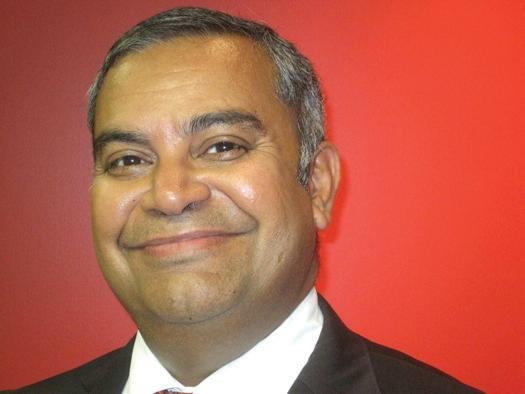
3 minute read
Living in a world of migration
from 2012-06 Sydney (1)
by Indian Link
PAWAN LUTHRA
Speaking recently at a function in the UK, well known author Salman Rushdie touched on the theme of global migration.
ADVERTISING MANAGER
Vivek Trivedi 02 9262 1766
ADVERTISING ASSISTANT
Nitika Sondhi 02 9279 2004
DESIGN
Danielle Cairis
Indian Link is a fortnightly newspaper published in English. No material, including advertisements designed by Indian Link, maybe reproduced in part or in whole without the written consent of the editor. Opinions carried in Indian Link are those of the writers and not necessarily endorsed by Indian Link. All correspondence should be addressed to
Indian Link
Level 24/44 Market St, Sydney 2000 or GPO Box 108, Sydney 2001
Ph: 02 9279-2004
Fax: 02 9279-2005
Email: info@indianlink.com.au www.indianlink.com.au
“We live in an age of migration. There are more people now living in countries in which they were not born, than in the rest of human history combined.”
Rushdie’s observation on the flight of human capital between countrieswhether economic or political refugees or with family reunion motives - was that humanity is on the move, and will continue to be so for seemingly the better part of this century.
The world population of over 7 billion, combined with increasing awareness of what lies on the other side of the world thanks to the media, the internet and cheap travel, has allowed the exodus of people to take place much faster and in quicker time than in any other time of history.
This movement of people brings different sides of our characters to the fore, some of them good and others not so good.
Over the past few years, one has come across a number of Indian entrepreneurs who have linked the business opportunities in their adopted country Australia to opportunities in India. On one side, there are those who, having lived here for a few years, have migrated back to India, established back offices in business processing in IT and now travel regularly to Australia to tender for business here for their teams in India. There are yet others, who have successful businesses in Australia but have over the past few years, set up back offices in India and so, while living in Australia travel regularly to use the skill set in India to provide services to their Australian customers. These entrepreneurs are normally young Indian migrants who are flexible and global with their approach in the business world.
Even at a more basic level, there are an increasing number of local travel agents who are setting up call centres in India for their basic travel enquiries: once the customer is won over, the tickets can be picked up from a physical office in Australia, which allows the customer to have assurance of a face-toface contact.
On the negative side, the arrival of new people in the country creates fear about job security and lifestyle changes for the existing community. As different cultures with different traditions, lifestyle, clothes, food, languages etc flood into the country, it is normal to feel concerned about change in the social fabric. It is often left to the leaders to explain the benefits of the change and how the tapestry of society can be enriched. Sure, there could be initial teething problems but over a longer period, the strength in the local culture should be strong enough to absorb the habits and lifestyle of the new migrants.
Xenophobia can raise its ugly head as vested interests speak out against the new arrivals. In a veiled manner, this was experienced when the recent proposal to bring in 1,700 overseas workers raised the shackles of the Australian Union movement. Most of the leaders, themselves from Irish and Scottish backgrounds lost sight of the bigger picture behind this proposal and their reaction was hostile. That the Prime Minister of the country could not explain the benefits of this migration agreement, rather feigned ignorance, was criticized by all.
With global migration at this scale, the challenge will be for greater education about the benefits of these changes to society. Leaders need to speak out and play down the shock jocks who prey on the feelings of paranoia and xenophobia of the masses. At the same time, new migrants need to work hard in keeping alive awareness of their roots and appreciation of where they came from and yet, assimilate in their new adopted countries.
SPIRITUAL
Bhagavad Gita classes by SVT Learn Chapters 7 to 13 of the Bhagavad Gita as taught by Sri Vasudevacharya, a senior disciple of Sri Swami Dayananda Saraswati, and a respected Vedanta Guru. Darcy Road Public School Hall, Darcy Road, Wentworthville, 3:00pm to 5:30pm
No prior knowledge is required. The course is in English and all materials will be provided. The course is free of charge; donations are accepted. Details at www. srivasudevacharya.org
Shree Ram Sharnam society
The Shree Ram Sharnam society’s Sydney headquarters are located at 23 Sheba Crescent, South Penrith. One-hour prayer sessions featuring the recital of the Shree Amritvaani are held daily between 7:30pm and 8:30pm (except Saturday and Sunday when prayers are held from 6pm to 7:15pm). The society’s next prayer-meditation sessions are scheduled for May 13 and June 3 from 9.00am









